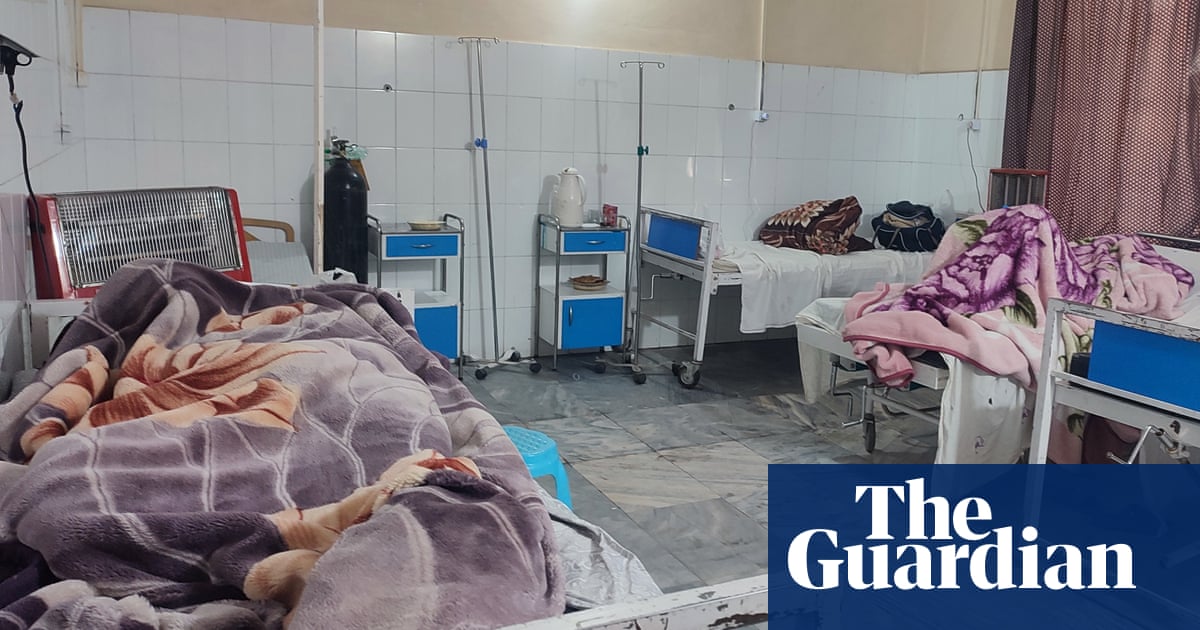First, her dreams of becoming a doctor were dashed by the Taliban’s ban on education. Then her family set up a forced marriage to her cousin, a heroin addict. Latifa* felt her future had been snatched away.
“I had two options: to marry an addict and live a life of misery or take my own life,” said the 18-year-old in a phone interview from her home in central Ghor province. “I chose the latter.”
This article strikes me in a way that I’m finding very difficult to put into words. Basically I can’t imagine this is any business of the average Guardian reader who is not going to be able to do anything about it other than to support another invasion or contra-like rebel group. Anyone speaking English as a first language has no credibility to exercise soft power to mitigate this in any way, and that is because for centuries the governments of people who primarily speak English have cemented the idea in the Afghan national identity (maybe the only nationally unifying idea) that Westerners are treacherous and not to be trusted meddling in Afghanistan’s internal affairs. This is especially given that this very meddling there and with other nearby countries is why the Taliban exists in the way it does. However this is addressed our involvement would not help and would likely lead to another exploitative apparatus. Maybe it might soften readers’ attitudes towards accepting refugees, but if they’re already reading The Guardian I’m not sure this is going to change anyone’s mind from one position to the other.
We have groups of people who are massively disproportionately ending their lives out of hopelessness in our nations and our spheres of influence. We may be able to do something about our own cultural flaws or those of our allies with whom we have some credibility.
Not really sure why you keep bashing The Guardian… Have you seen the UK’s top most read papers (The Sun and The Daily Mail)?
I’m not bashing the Guardian, and out of widespread publications I would definitely say they are among the best. My criticism is based on their primary and secondary audiences residing in places whose governments’ actions have rendered them incapable of assisting Afghanistan or its people. As a side note my first exposure to The Daily Mail was when it was being distributed for free at the airport, and it made me so angry I threw it in the trash with much more force than I realized. Awful racist rag.
Edit: I’m suggesting in my previous comment that Guardian readers are already likely to support refugees or else they would be reading the Sun or the Daily Mail instead.
I’m still not entirely sure, what your point is. Don’t report things already known to be bad? You seem to be enjoying using overly complex sentences, but you don’t actually say anything worth typing.
FYI: There’s a study published in March 2023 investigating the Prevalence and predictors of depression among women in Afghanistan (pdf, 9 pages). It is obvious that women are facing a harsh life reality which is far beyond what we can imagine here in our western world.
A recent national survey in Afghanistan reported that 47% of women suffered from mental health illnesses including depression [10]. An earlier survey conducted in 2003 evaluated the depression rate among women in Afghanistan. The survey reported high rates of clinical depression (73–78%) and suicidal ideation among Taliban-controlled regions versus those in a Pakistani refugee camp (28%) [11]. The provision of overall healthcare services including psychiatric services has been halted or inaccessible due to an ongoing political crisis in the country [12]. […]
Women in Afghanistan face chronic trauma, emotional abuse, and patriarchal community ideals which may lead extreme depression and suicidal thoughts [13, 14]. Gender-based violence against women, forced marriages, and the impact of war are the most important factors for this [14]. Traditional practices and customs, early marriage, and teenage pregnancies make it more difficult for women to obtain an education, learn new skills, and inherit property, all of which contribute to poor mental health outcomes [15].




